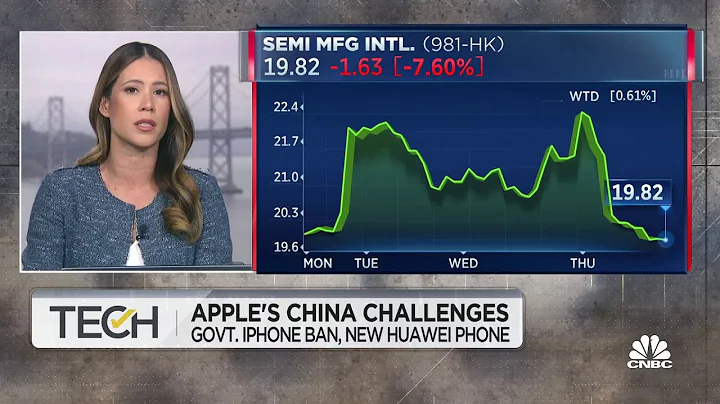text | Dong Maohui
Starting from Changting, Fujian, there is a bridge a few kilometers along the Xia-Rong Expressway. There is a sign on the bridge: "Taiwan Prefecture Bridge", which is very eye-catching.

This bridge is located in Cexing Village, Cewu Town, Changting County,. It is named after a small natural village "Taiwan Mansion". A small natural village in the mountainous area of western Fujian is named "Fu", and it is "Taiwan Fu", which is extremely curious. What is the story and origin of this village and Taiwan Province, a treasure island separated by water and across the sea from Fujian?
"Taiwan Fucun" is very small, with more than 200 people all surnamed Huang. Like countless Hakka villages, they live together by blood. The small village is located quietly and peacefully in a mountain basin. The basin is surrounded by clear streams on three sides, and the sparkling Tingjiang River passes through the village. The "Taiwan Mansion Bridge" spans the Tingjiang River. There are lush trees on the shore. Small vegetable fields are scattered on the river beach. The green vegetables decorate the small village and are full of vitality.
During the year of Emperor Gong of the Song Dynasty (AD 1275), Liancheng County Huang Zongli passed by this place on his way to take exams. He was hindered by the green mountains and green waters, so he established his ancestors and multiplied their lives here. Gradually, the population prospered and it became a prominent local family that promoted martial arts. Huang Weixian, the tenth generation grandson of Zongli Gong, was respectfully called "Huang Mansion".
Due to the increasing population of the clan, about 200 years ago, the youngest of the four Huang brothers separated from his family and moved to the other side of the Tingjiang River to live across the river from his three elder brothers.
Since the Song Dynasty, the Tingjiang River has been an important shipping route in the three provinces of Fujian, Guangdong and Jiangxi. In the Ming Dynasty, it became an important part of the Maritime Silk Road. There were "three thousand ships going up and eight hundred ships going down." The river was majestic and wide, with high winds and rough waves. There are few bridges in rural areas. To cross the river, you have to go a long way to a market town to find a bridge or hire a ferry sailor, making transportation extremely inconvenient. Brothers look at each other and hear each other's chickens and dogs from a distance, but they are so close and separated by a river of water that they can see the smoke from the kitchen and hear the children crying, but they can only be reunited during weddings, funerals, and ancestor worship during the Qingming Festival. The close relatives of flesh and blood cannot hold hands and help each other. The full moon in the river is shining with silver light, rolling up the whirlpool of longing and bumping into the sea.

Two flowers bloom, one on each side.
A famous general in the late Ming and early Qing dynasties - the hero of the recovery of Taiwan Liu Guoxuan , a native of Sidu, Changting County, Fujian Province, was rated as "loyal" and "the first to return to his life" by Emperor Kangxi's edict, and was awarded posthumously to Doctor Guanglu and Prince Shao Save. When he was 15 years old, he developed an ambush strategy, commanding the villagers to form a stronghold to protect themselves and defeat the troops that disturbed the people. Later, he helped Zheng Chenggong recover Taiwan. After the Qing Dynasty unified the country, he persuaded Zheng Keshuang and his officials to submit to him. Liu Guoxuan had great military exploits and outstanding political achievements, and was famous for his wisdom and strategy. His legendary stories were spread among the people.
At that time, there were many relatives from Western Fujian who followed Liu Guoxuan in his southern and northern campaigns. They fought bloody battles with Liu Guoxuan and were stationed in various departments in Taiwan. After Liu Guoxuan was granted the title of Marquis, the soldiers who followed him returned home in fine clothes one after another and took their families to live in Taiwan. Among the soldiers who were returning home were members of the Cewu Huang clan. The surging Tingjiang River welcomed their returning relatives with the most solemn ceremony. The thundering firecrackers, the heroic stories of regaining Taiwan, and the laughter and laughter of reunions resounded through the sky. After the excitement, we knew our brothers. One of the families had already separated and moved away. Eager to see their relatives, they stood by the Tingjiang River and shouted loudly. The family members on the other side responded excitedly across the surging river. However, it took two days to climb mountains and wade through rivers before they could meet. The eagerly waiting relatives stood on the riverside in front of the house for a long time, waiting for the brothers to return and reunite. A series of anxious footprints were stepped on the river beach, and the anticipation was mixed with bitterness. One of them shed tears while looking at the broad river surface, and sighed: "I finally survived the bloody storm and returned home from Taiwan, which is across the water. Little did I know that the two sides of the strait are separated by Taiwan!" "It's exactly the same as us! The recovered Taiwan government is so similar!" the returning soldiers echoed in unison.
Since then, the name "Taiwan Prefecture" has spread among the sergeants and villagers, and is still used today.
Taiwan was established in the 23rd year of Kangxi (AD 1684), and it was jointly affiliated with Tingzhou Prefecture of the then Fujian Province. It was not until the 13th year of Guangxu (AD 1887) that an independent province was established.Because of Liu Guoxuan, the famous general who regained Taiwan, the name of Taiwan Prefecture had a high reputation and influence in the Tingzhou Prefecture at that time. There were also a large number of people from Tingzhou who went to Taiwan, and even influenced Taiwan's religious beliefs.

Pearl of Tingjiang: Yanggu Tianhou Temple
The "Mazu" who was brought to Taiwan from the Hakka spirit in Tingzhou is respectfully called "Tingzhou Ma". For example, it was first built in Bengang, Chiayi County in the 52nd year of Kangxi (AD 1713). Mazu is enshrined in Tianhou Temple, and Mazu is enshrined in Longtian Temple in Longjing Township, Taichung County, which was built in 1981. On the island of Taiwan, there are even more "Tingzhou Mazu" spawned from Bengang Tianhou Palace and Nanyao Palace.
The Dingguang Temple located in Changhua , Tamsui and Tainan are dedicated to the local belief of the Tingzhou Hakkas - Dingguang Buddha. The temple is also known as "Tingzhou Hall" or " Yinshan Temple " (Yin is the ancient (also known as Tingzhou), they were all built by immigrants from Tingzhou during the Ming and Qing Dynasties. There is a couplet in the Dingguang Temple in Changhua. The first couplet says, "The ancient ruins trace back to the Yinjiang River, and the bones and bones escape. The sky and color are beyond the round light." It clearly points out that its birthplace is in Tingzhou, Western Fujian.
Coincidentally, there is a small place named "Taiwan House" in Zhongjie Village, Hetian Town, Changting County. The origin of the place name is similar to that of "Taiwan House" in Cewu. In the "Taiwan Mansion" in Hetian, there is a 95-year-old Yu Lian who can still sing a folk song with a touch of sadness: " Taiwan sugar, sweetness, sweetness in the mouth, pain in the heart". The ancestors of the Yu family were married to Taiwan, and their families were forever separated by an ocean. The Hakka rice cake steamed with Taiwanese white sugar is sweet on the tip of the tongue, but it cannot hide the pain of homesickness and the hot tears.
There are two "Taiwan Prefectures" in one county in Changting, Fujian. Whether it is due to the marriage between the people and Taiwan or the similarity of the terrain, these are undoubted marks and evidence of the exchanges between Ting and Taiwan and the origin of Fujian and Taiwan. A small village with hundreds of families, quietly taking root among the green mountains and green waters for more than a hundred years. The story of the legend slowly settling in these two small villages in western Fujian reflects each other with the "Tingzhou Ma" and "Dingguang Buddha" on the other side of the strait. Those feelings that we call the blood of our compatriots stretch endlessly in the slowly flowing Tingjiang River, echoing the sound of rolling waves on the other side of the mountain and on the other side of the sea!





















